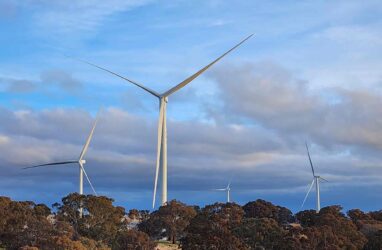Feed aggregator
FEATURE: Landmark CO2 tax on Danish farming sets global precedent, though ambition was scaled back
TNFD adopters grow past 400, pass $6 trillion in market capitalisation
Study finds BNG metric brings no gains for birds, butterflies
CN Markets: CEA hovers around 90-93 yuan, liquidity improves
Japan publishes draft JCM methodology for rice cultivation, first in agricultural sector
Weather tracker: Heavy rain in Switzerland and Italy causes flooding
Downpours moved south from Alps as far as Emilia-Romagna and Tuscany, causing rivers to overflow
Heavy rain and thunderstorms have caused havoc in Switzerland and northern Italy over the past week. Switzerland was badly hit on Friday 21 June, with downpours delivering more than 100mm across many areas – more than half of this within one hour.
Flash flooding and landslides swept away cars and houses, with at least one person known to have died, alongside widespread damage to transport infrastructure. The mountain resort of Zermatt was entirely cut off due to a combination of flood water, road closures and suspended train services.
Continue reading...North Sea oil and gas firm Perenco failing to seal old wells, documents show
Fears of fire and environmental disaster as company repeatedly misses UK deadlines to decommission sites
The North Sea’s biggest oil and gas infrastructure company is risking fires and environmental disasters, experts have warned, as documents reveal it is failing to plug its ageing oil wells in time and is missing decommissioning deadlines by up to a decade.
Last year, the fossil fuel firm Perenco faced controversy after an oil spill from its Poole Harbour operations polluted the Dorset site, which is internationally recognised for its ecological importance. The RSPB reported oiled birds in the water at the largest natural harbour in Europe, which is one of the most heavily protected areas in the UK. Perenco promised it would never happen again and committed to pay for the damage caused.
Continue reading...BRIEFING: What climate policy agenda for von der Leyen’s second term?
Incoming Indonesian govt to form state-run body to oversee the country’s carbon market
Japan picks nine advanced projects to support CCS commercialisation
UN-backed coalition grants $20 mln to Cameroon for adopting sustainable agricultural practices
Australia Market Roundup: ACCU prices stable as traders speculate on Safeguard demand, issuance drops
Week in wildlife – in pictures: geese on parade, a radioactive rhino and a lovestruck eagle
The best of this week’s wildlife photographs from around the world
Continue reading...Some of us don’t have high-quality drinking water, and it’s putting public health at risk. How do we deliver universal access?
Tesla battery business is worth nearly $200 billion, more than any Australian company except BHP
The post Tesla battery business is worth nearly $200 billion, more than any Australian company except BHP appeared first on RenewEconomy.
NSW wind and solar auction comes up short, with one winning project already built
The post NSW wind and solar auction comes up short, with one winning project already built appeared first on RenewEconomy.
EU leaders nominate von der Leyen for second term, adopt strategic agenda 2024-2029
‘Things started to look dire’: our deep-dive into past climates sounds a warning for this unique corner of Australia
Is Australia finally catching up on clean energy benefits for First Nations?
The post Is Australia finally catching up on clean energy benefits for First Nations? appeared first on RenewEconomy.
Household power usage hits a new low – but regulator credits the weather, not rooftop solar
The post Household power usage hits a new low – but regulator credits the weather, not rooftop solar appeared first on RenewEconomy.







